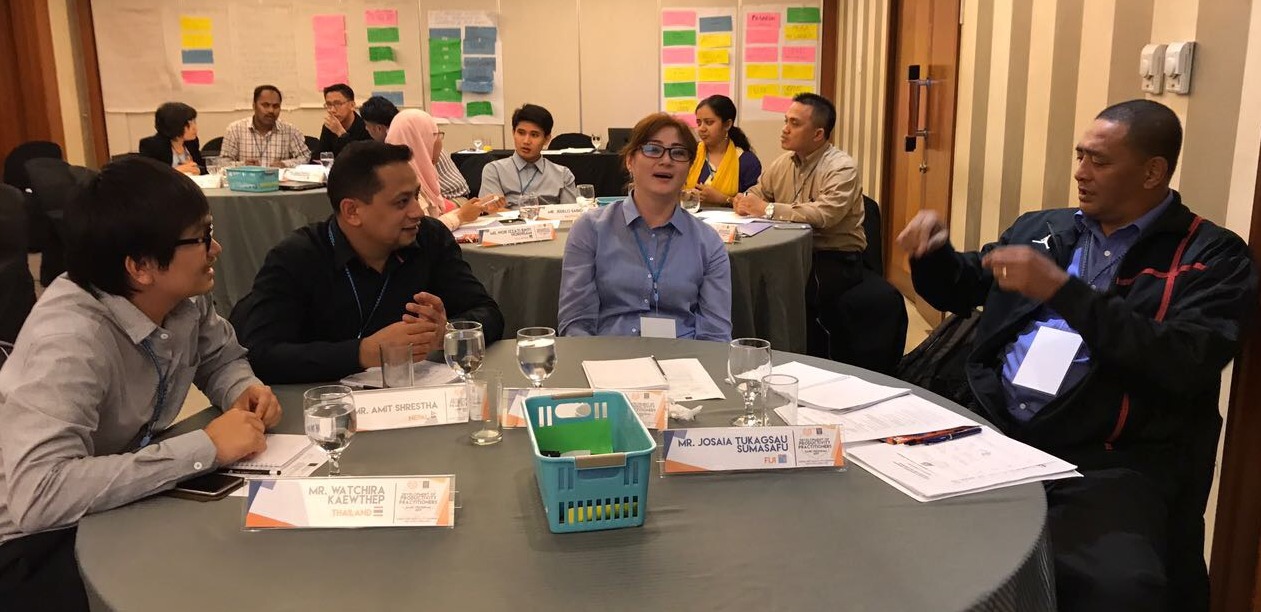
Select Page
Over the years, various capacity-building programs have been organized to assist the development of NPOs in line with the APO strategic direction of strengthening NPOs and enabling them to increase the productivity and competitiveness of member countries. The Development of Productivity Practitioners (DPP): Basic and Advanced courses are core projects to achieve this primary goal. These two courses that have been organized for almost two decades aim to develop future experts and specialists in productivity improvement at the organizational and national levels.
The recently concluded basic course in Manila and Tagaytay City from 8 May–2 June was the 22nd in the series of the DPP and was organized in collaboration with the DAP. A total of 21 participants attended, among whom 18 were from NPOs, while others represented NPO affiliate organizations such as universities, chambers of commerce, and SME development agencies. The APO assigned resource persons from the ROC, Singapore, and Sri Lanka, while the DAP engaged several in-house and external experts.
This training course is one of the components under the Certification Program for Productivity Practitioners, whereby participants complete three stages covering self-e-learning, face-to-face course, and follow-up project implementation. Participants are given six months after course completion to submit reports on follow-up activities to qualify as APO-certified productivity practitioners.
The four-week course was officially concluded by DAP President and CEO Dr. Elba S. Cruz. She stated that this course had produced almost 500 productivity practitioners over the past 22 years and some had showcased their experiences in the productivity and quality journey. She expected similar outcomes from the participants in the 2017 course. She reminded all participants that the real measure of their effectiveness as productivity practitioners lay not merely in the translation of concrete plans into full project implementation but more in the ability to sustain improvement efforts aimed at achieving a productivity and quality culture.

Participants in the group work session during the Development of Productivity Practitioners (DPP): Basic course.
APO resource person from Sri Lanka Secretary Upali Marasinghe of the Ministry of Plantation and Industry, who attended the course in 2004, advised all participants to practice what they had learned from the course, focus on specific areas and expertise, and continue to develop their knowledge. Secretary Upali, who is also former Head of the National Productivity Secretariat (NPS) of Sri Lanka, reported on the development programs for productivity practitioners in Sri Lanka and nationwide productivity promotional activities implemented by the NPS in collaboration with several other stakeholders. As a former DPP graduate, Secretary Upali also emphasized the importance of networking among all participants and resource persons.